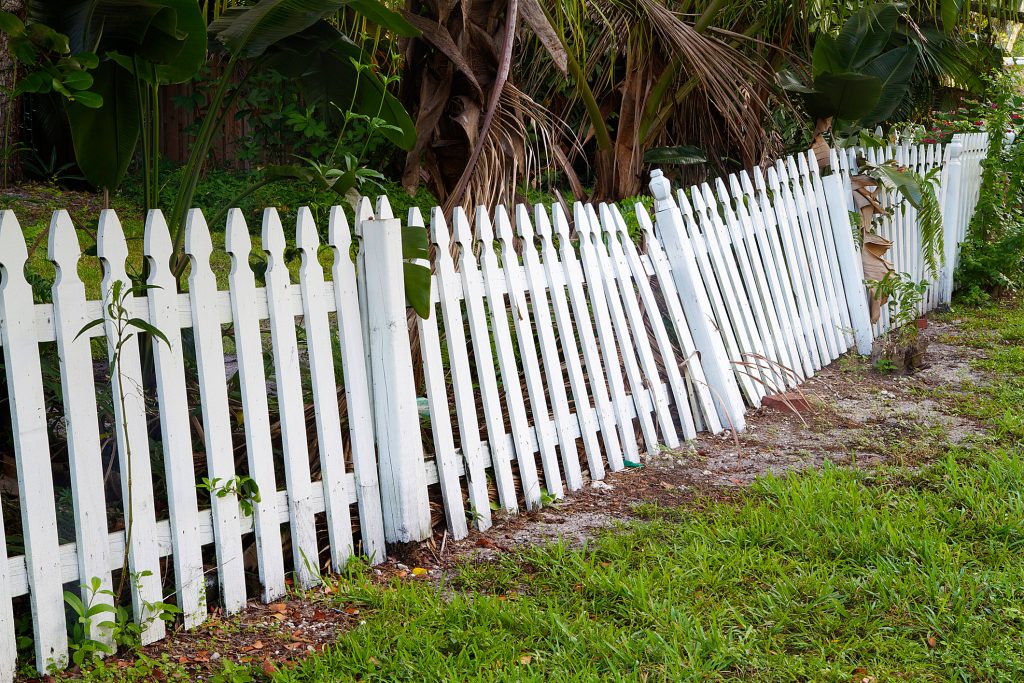Why is My Fence Leaning? July 27, 2024 Comments: 0

You are wondering: Why is my fence leaning? Your fence may be leaning due to long-term weather damage to the fence or the ground in which it was installed. Improper installation or poor-quality fence materials may also be at fault. Depending on how much it is leaning, you may need a professional to fix it.
Before you spend money on fence repairs or new fence installation, it is important to understand why your fence is leaning. Doing proper research now could prevent the same problem from happening in the future.
Natural Weathering
If you have a wooden fence, over time, it may begin to warp since it consists of 100 percent natural materials. The moisture absorbed from rain or even sprinklers causes the wood to swell and dry out. This repeated cycle will eventually shrink the wood, crack or warp, causing the fence to lean. Even pressure-treated wood is susceptible to some amount of moisture. To keep your Pittsburgh fence in good condition, perform yearly fence maintenance and avoid sprinklers coming into contact with the wood.
Weather Damage
In Pittsburgh, we experience all of the seasonal weather changes; therefore, it is important to make fence repairs immediately when harsh weather impacts your fence. Torrential rain, heavy snow, severe sleet, and strong winds can all contribute to a leaning fence, but the weather doesn’t have to be severe to cause damage. Most fences are not protected by a structural cover; therefore, it’s the repeated exposure to the elements that eventually cause the damage. Additionally, ongoing wet conditions can make the soil soggy, loosening it from the fence posts and aggravating the fence leaning.
Shallow Fence Posts/Improper Installation
It is best to hire professionals, such as Pittsburgh Fence Co, Inc., to handle any fence installation.
If your fence was not properly installed, your fence might have already started to lean. This can be caused by shallow fence posts. For your fence to be structurally stable, the holes must be dug deep enough. For example, an 18-inch hole is recommended for a 3-foot fence, while a 7-foot fence requires a 42-inch hole. Durable, sturdy fence posts help your fence withstand high winds, heavy storms, hail, and excessive ground moisture.
Poor Quality Wood
If your fence posts are not made of the right type of quality wood, they will be susceptible to mold, mildew, and rot. The wood, for the posts especially, needs to be rated to come in contact with soil. If not, your wood will begin to decay, eventually causing it to lean.
Fence Repair and Fence Maintenance in Pittsburgh
If you require fence repair or maintenance, call the experts at Pittsburgh Fence Co, Inc. The team of dedicated professionals at Pittsburgh Fence Co, Inc. has been installing and repairing fences in the Pittsburgh area for over 50 years. Call us at one of our four offices today to speak with a team member:
North: 412-276-4822
South: 724-228-9755
East: 412-784-1400
West: 724-775-6550